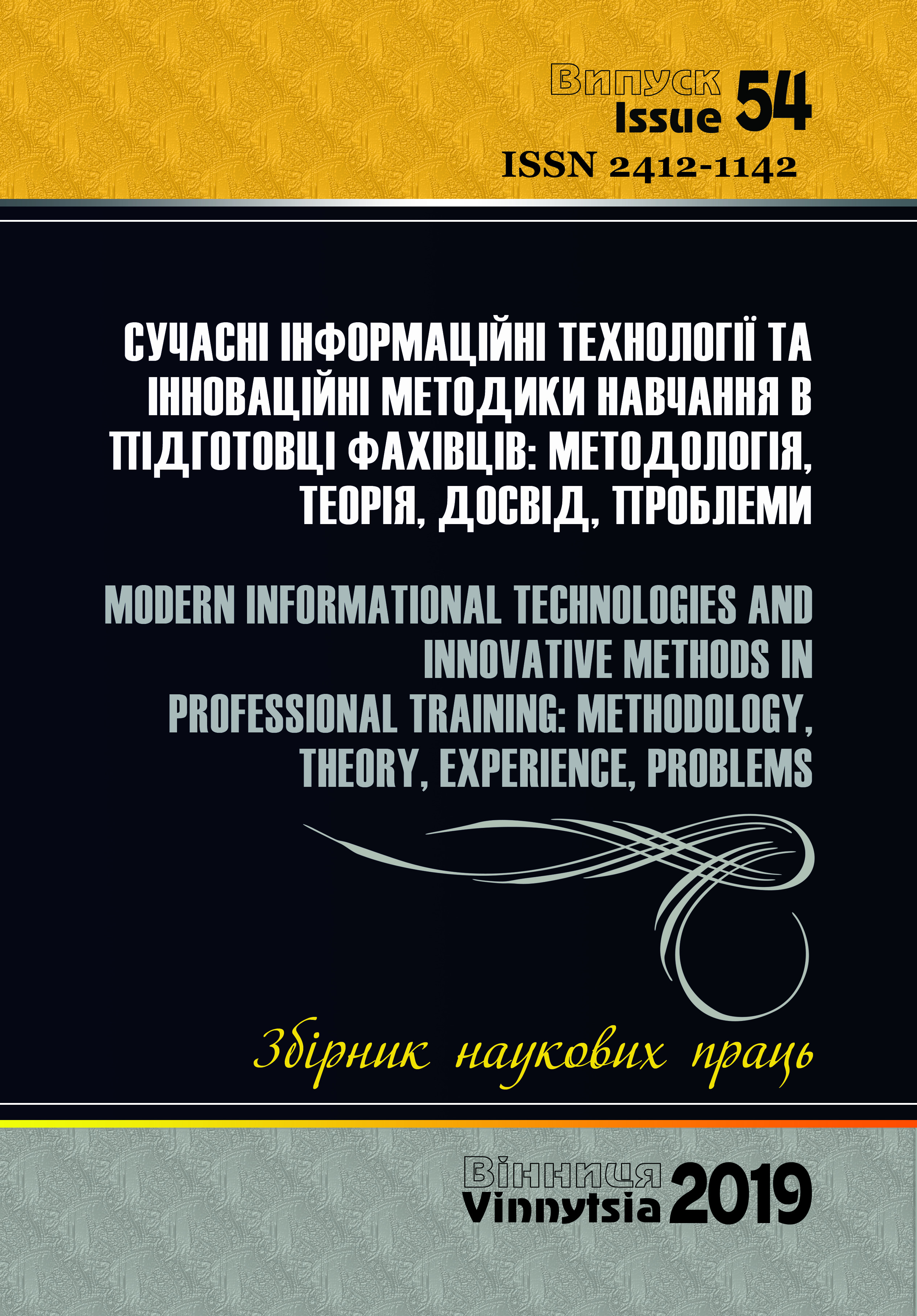COMPARATIVE ANALYSIS OF DEFINITIONS «CRITICAL THINKING» AND «LOGICAL THINKING»
DOI:
https://doi.org/10.31652/2412-1142-2019-54-121-125Keywords:
логічне мислення, критичне мислення, логіка, аналіз, синтез, порівняння, абстрагування, узагальнення, класифікація, систематизаціяAbstract
Summary.The article deals with the analysis of scientists’ definitions of «critical thinking» and «logical thinking»
in determining its essence, development opportunities and didactic approaches in this field. The definition of critical and
logical thinking from the point of view of philosophers, psychologists, methodologists, and educators has been analyzed.
The scientists' thoughts about the definition and interpretation of the concepts of «critical thinking» and «logical thinking»
to achieve a particular pedagogical goal or to construct a particular pedagogical (educational) model are covered. Their
main elements and features are distinguished. It is substantiated that logical thinking is the basis, since it includes such
basic operations as analysis, synthesis, comparison, abstraction, generalization, classification, systematization. Logical
thinking is characterized by the ability to apply the laws of logic which help to organize your activities, carry out logic
operations and justify them, build hypotheses and draw conclusions. An important basis for the formation of logical
thinking is the creation of conditions for active mental activity at all stages of learning. An especially importance lies in
critical logical thinking as its own assessment, diligence in verifying decisions, developing arguments etc. Critical thinking
involves, in addition to logical operations, a critical attitude to the obtained results, which extends its characteristics, and
thus distinguishes critical thinking from logical ones.
Downloads
References
Беспалько В. П. Слагаемые педагогической технологи / В. П. Беспалько. – М. : Педагогика, 1989. – 215 с.
Заяць О. В. Психолого-педагогічні основи розвитку логічного мислення дітей молодшого шкільного віку на уроках
математики / О. В. Заяць // Науковий часопис НПУ імені М. П. Драгоманова, 2014. – No 48. – C. 64 – 69.
Коротка філософська енциклопедія. – М.: «Видавнича група «Прогрес» - «Енциклопедія», 1994. – С. 281.
Кравчук О. Психолого-педагогічні проблеми впровадження інновацій у шкільну практику в 20-роки ХХ ст. Педагогічні
науки: теорія, історія, інноваційні технології : наук. журнал / голов. ред. А. А. Сбруюва. – Суми : Вид-во СумДПУ імені А. С. Макаренка, 2016. – No 8 (62). –С. 43 – 54.
Лернер И. Я. Развитие мышления учащихся в процессе обучения истории / И. Я. Лернер – М. : Просвещение, 1982. – 191 с.
Максименко С. Д. Загальна психологія. Видання 3-є, перероблене та доповнене. Навчальний посібник /
С. Д. Максименко, В. О. Соловієнко. – К. : Центр учбової літератури, 2008. – 272 с.
Подгорецкая Н. А. Изучение приемов логического мышления у взрослых. – М.: Изд-во МГУ, 1980. – 150 с.
Поспелов Н. Н., Поспелов И. Н. Формирование мыслительных операций у старшеклассников. – М.: Педагогика, 1989. – 152 с.
Прошкін В. В. Геометричні задачі на побудову як дієвий інструментарій формування навичок ХХІ століття /
В. В. Прошкін // Освітологічний дискурс, 2017. – No 3-4 (18-19) – С. 122 – 136.
Психологическая диагностика (учебное пособие) / Под ред. Гуревича К. М., Борисовой Е. М. – М.: УРАО, 1997. – 420 с.
Рогов Е. И. Настольная книга практического психолога в образовании. – М.: Эйдос, 1995. – 113 с.
Терно С. О. Методика розвитку критичного мислення школярів у процесі навчання історії / С. О. Терно : [посібник для вчителя]. — Запоріжжя: Запорізький національний університет, 2012. — 70 с
Тихомирова Л. Ф. Розвиток логічного мислення дітей / Л. Ф. Тихомирова, А. В. Басов. – Ярославль : ТОВ Академія розвитку, 1996. – 240 с.
Триллінг Б. Навички XXI століття. Навчання для життя у наш час [Електронний ресурс] / Б. Триллінг, Ч. Фейдл : перекл. з англ. С. Христофорової. – Режим доступу : http://edu.rucamp.org 'posts/14425029.
Тягло О. В. Критичне мислення – сучасна освітня інновація / О. В. Тягло // Вісник Національного університету внутрішніх справ. – Спецвипуск. – Х., 2002. – С. 29-35
Філософський енциклопедичний словник. – М., 1983. – С. 391.
Халперн Д. Психология критического мышления / Д. Халперн – 4-е Международное издание. – С.-Пб. : Питер, 2000. – 512 с.
Jiangyue Gu. Preparing students with 21st century skills: integrating scientific knowledge, skills and epistemic beliefs in middle school science curricula / Jiangyue Gu, Brian R. // Emerging technologies for STEAM education. – Режим доступу:
https://link.springer.com/chapter/10.1007/978-3-319-02573-5_3.
Paul Richard W. Critical Thinking: What Every Person Needs to Survive in a Rapidly Changing World / Paul Richard W. // Rohnert Park, CA: Center for Critical Thinking and Moral Critique, Sonoma State Univ. – 1990. – 575 р.
Downloads
Published
Issue
Section
License
Copyright (c) 2020 Р. С. Мілян

This work is licensed under a Creative Commons Attribution 4.0 International License.

